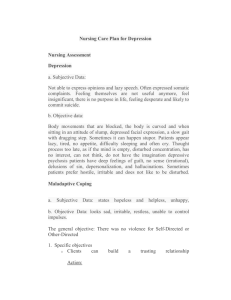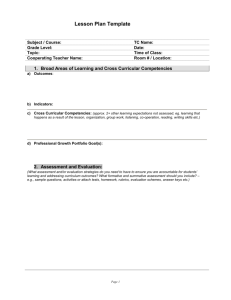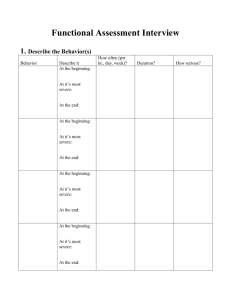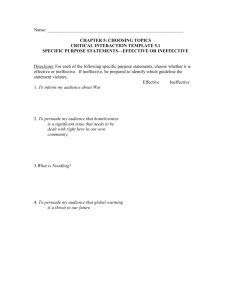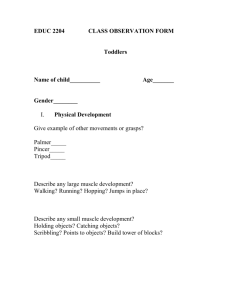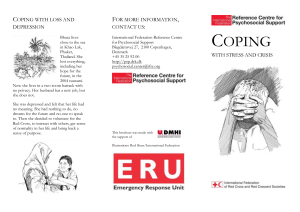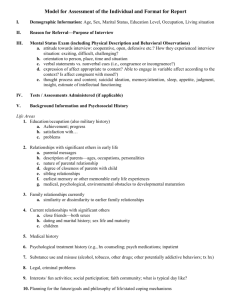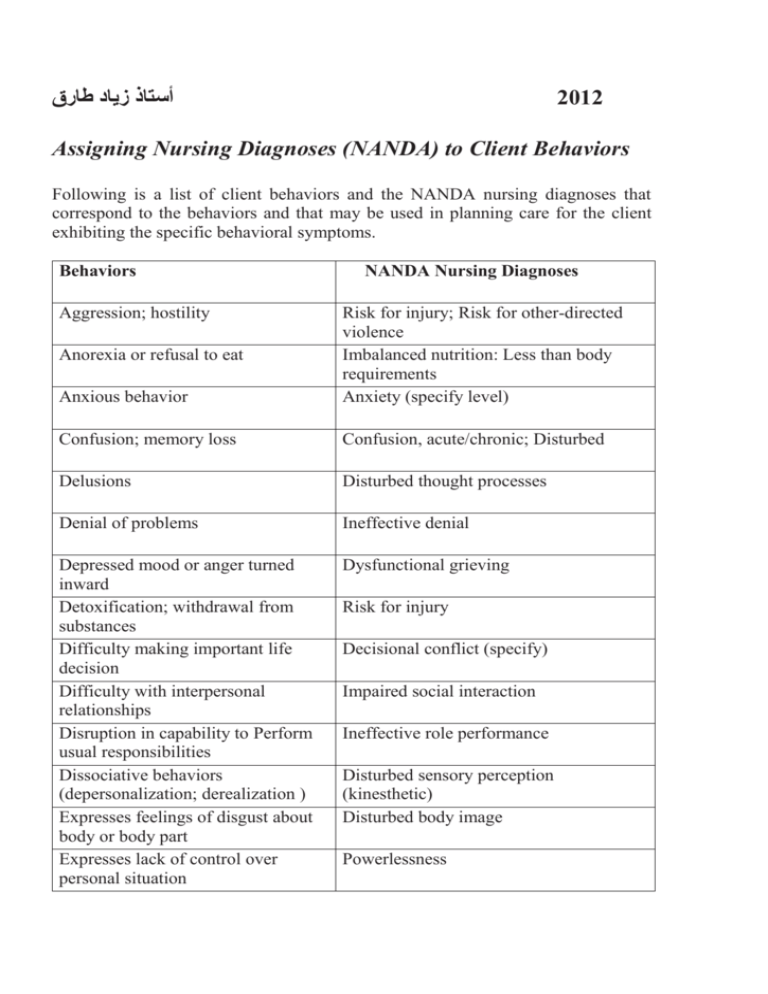
أستاذ زياد طارق
2012
Assigning Nursing Diagnoses (NANDA) to Client Behaviors
Following is a list of client behaviors and the NANDA nursing diagnoses that
correspond to the behaviors and that may be used in planning care for the client
exhibiting the specific behavioral symptoms.
Behaviors
Aggression; hostility
NANDA Nursing Diagnoses
Anxious behavior
Risk for injury; Risk for other-directed
violence
Imbalanced nutrition: Less than body
requirements
Anxiety (specify level)
Confusion; memory loss
Confusion, acute/chronic; Disturbed
Delusions
Disturbed thought processes
Denial of problems
Ineffective denial
Depressed mood or anger turned
inward
Detoxification; withdrawal from
substances
Difficulty making important life
decision
Difficulty with interpersonal
relationships
Disruption in capability to Perform
usual responsibilities
Dissociative behaviors
(depersonalization; derealization )
Expresses feelings of disgust about
body or body part
Expresses lack of control over
personal situation
Dysfunctional grieving
Anorexia or refusal to eat
Risk for injury
Decisional conflict (specify)
Impaired social interaction
Ineffective role performance
Disturbed sensory perception
(kinesthetic)
Disturbed body image
Powerlessness
Flashbacks, nightmares, obsession
with traumatic experience
Hallucinations
Post-trauma syndrome
Highly critical of self or others
Disturbed sensory perception
(auditory; visual)
Low self-esteem (chronic; situational
HIV-positive; altered immunity
Ineffective protection
Inability to meet basic needs
Insomnia or hypersomnia
Self-care deficit (feeding; bathing/
hygiene; dressing/grooming;
toileting)
Disturbed sleep pattern
Loose associations or flight of ideas
Impaired verbal communication
Manic hyperactivity
Risk for injury
Manipulative behavior
Ineffective coping
Multiple personalities; gender
identity disturbance
Orgasm, problems with; lack of
sexual desire
Overeating, compulsive
Disturbed personal identity
Phobias
Sexual dysfunction
Risk for imbalanced nutrition: More
than body requirements
Fear
Physical symptoms as coping
behavior
Projection of blame; rationalization
of failures; denial of personal
responsibility
Ritualistic behaviors
Ineffective coping
Seductive remarks; inappropriate
sexual behaviors
Self-mutilative behaviors
Impaired social interaction
Defensive coping
Anxiety (severe); Ineffective coping
Self-mutilation; Risk for self-mutilation
Sexual behaviors (difficulty,
Ineffective sexuality patterns
limitations, or changes in; reported
dissatisfaction)
Stress from caring for chronically
ill person
Stress from locating to new
environment
Substance use as a coping behavior
Caregiver role strain
Substance use (denies use is a
problem
Suicidal
Ineffective denial
Relocation stress syndrome
Ineffective coping
Vomiting, excessive, self induced
Risk for suicide; Risk for self directed
violence
Disturbed thought processes; Ineffective
coping
Risk for deficient fluid volume
Withdrawn behavior
Social isolation
Suspiciousness

